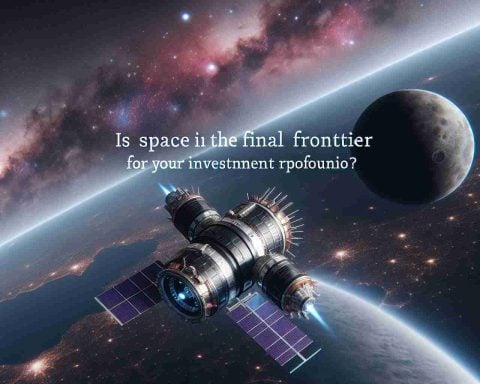Sweden Embarks on a New Space Era
In a significant move for Europe, the Swedish Space Corporation (SSC) has been tasked by the Swedish Defence Materiel Administration (FMV) to lay the groundwork for satellite launches from the Esrange Space Center. This initiative marks a pivotal moment in Sweden’s ambition to establish a premier launch capability located on the continent.
On October 4, 2024, the Swedish government approved a plan to invest around SEK1 billion into enhancing the nation’s military presence in space through 2032. This financial commitment aims not only to bolster the Swedish Armed Forces’ situational awareness in space but also to develop the infrastructure needed at Esrange. Importantly, the initiative will enable the country’s military to deploy multiple satellites, effectively boosting its operational capacity.
Following this governmental decision, the FMV’s collaboration with SSC signifies an important first step. The focus is on developing a foundational capability for satellite launches that will empower Sweden with greater control over its space operations. This enhancement is expected to provide critical support to the Armed Forces by improving the reliability and functionality of the satellite systems.
As Sweden steps forward into this new frontier, its actions could potentially set a precedent for other European nations, fostering collaboration within NATO and enhancing the collective security framework in the region.
Sweden’s Bold Leap into Space: What It Means for the Future of European Defense
Sweden Embarks on a New Space Era
Sweden is gearing up for a significant transformation in its space capabilities, driven by a strategic investment aimed at enhancing national defense and operational efficiency. The Swedish Space Corporation (SSC) has been commissioned by the Swedish Defence Materiel Administration (FMV) to establish a satellite launch infrastructure at the Esrange Space Center. This initiative is poised to mark the dawn of a new era for Sweden in both space exploration and military operations.
Investment Overview
On October 4, 2024, the Swedish government announced a substantial investment of approximately SEK 1 billion, aimed at strengthening the nation’s presence in space through to 2032. This funding is not merely for military purposes; it encompasses a broader vision of establishing a robust and versatile space infrastructure. The investment is expected to facilitate the deployment of multiple satellites, thereby enhancing situational awareness and operational flexibility for the Swedish Armed Forces.
Key Features of the Initiative
1. Satellite Launch Capability: The primary focus is on developing facilities and technologies at Esrange that will enable efficient satellite launches.
2. Military Applications: Enhanced satellite capabilities will augment military communication, reconnaissance, and intelligence operations.
3. Technological Development: The initiative includes advanced research and development of satellite technologies to ensure that Sweden remains at the forefront of space innovation.
4. NATO Collaboration: This push into space aligns with broader NATO goals, fostering closer cooperation among member nations and enhancing collective defense strategies.
Pros and Cons of Sweden’s Space Initiative
Pros:
– Enhanced Defense: Improves Sweden’s military situational awareness and operational capabilities.
– Economic Growth: Attracts investment and creates jobs in the space technology sector.
– Strategic Independence: Reduces reliance on foreign satellite systems and enhances self-sufficiency.
Cons:
– High Costs: The significant financial investment may divert funds from other critical areas of public expenditure.
– Technological Risks: Developing new space technology carries risks, including technical failures and delays.
– Geopolitical Tensions: Increased military capabilities could heighten tensions with neighboring countries.
Future Predictions and Trends
As Sweden advances its space capabilities, it is likely to inspire other European nations to consider similar paths. The focus on enhancing military operations via space is a growing trend among NATO allies, reflecting the recognition of space as a crucial domain for modern warfare. Experts predict that as more countries invest in space technology, collaborative missions and shared resources will become commonplace, promoting joint defense initiatives.
Use Cases for Enhanced Satellite Capabilities
– Near-Earth Observation: Enhanced surveillance of regional threats and natural disasters.
– Secure Communications: Improved secure communication channels for military operations.
– Scientific Research: Facilitation of scientific missions to study environmental changes and technological development.
Conclusion
Sweden’s investment in space technology represents a significant stride towards enhancing national security and operational efficacy in military applications. With its emphasis on developing launch capabilities at Esrange, Sweden is set to play a pivotal role in the evolving landscape of European and global military operations. This initiative not only underscores Sweden’s commitment to innovation but also illustrates a broader trend of countries leveraging space technology for national defense.
For more insights on space developments and military technology, visit Swedish Space Corporation.


















